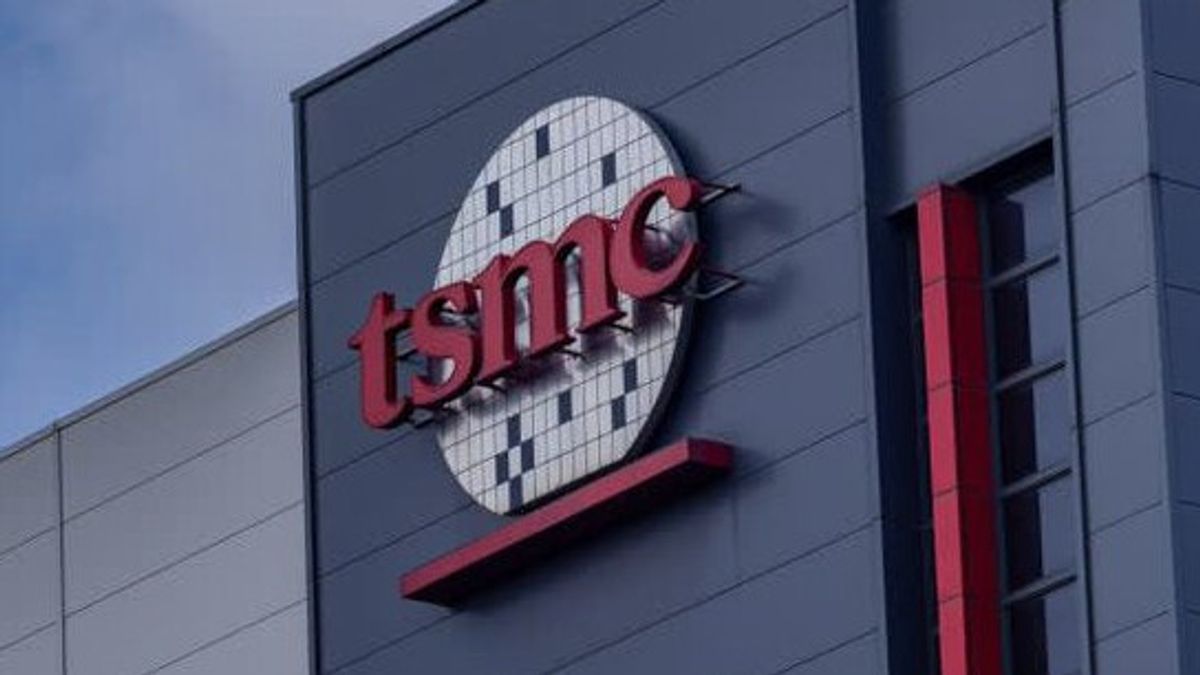JAKARTA - The United States government has instructed Taiwanese Semiconductor Manufacturing Co (TSMC) companies to stop sending advanced chips to customers in China used in artificial intelligence (AI) applications starting Monday, November 11.
The order comes in the form of a letter from the US Department of Commerce limiting high-tech chip exports, particularly those with a design of 7 nanometers or more advanced, to China. The chip is widely used in AI accelerator units and graphics processors (GPUs).
This move came after a report from TSMC to the US Department of Commerce that one of its chips was found in Huawei's AI processor. Last month, tech research firm Tech Insights dismantled Huawei's products and discovered TSMC's chip, which allegedly violated export rules.
Huawei itself is included in the US limited trade list, which requires all suppliers to obtain licenses to deliver any goods or technology to the company. Most likely, any licensing application supporting the development of Huawei AI will be rejected by the US government.
As a result of the letter, TSMC also stopped shipping to China's chip design company Sophgo, after one of their chips was discovered in Huawei's AI processor. It is not yet known how the chip got into Huawei's 910B Ascend processor, which was launched in 2022 and is considered the most advanced AI chip from the Chinese company.
SEE ALSO:
The order not only targets Huawei, but also allows the US to identify whether any other companies might channel chips to Huawei for use in their AI processors. This action allows the US Department of Commerce to closely monitor other companies potentially involved in the supply of technology to Huawei.
Taiwan's Ministry of Economy, stated that TSMC regularly discusses with the government on export control issues and will comply with all regulations both domestically and internationally. A TSMC spokesperson added that the company is committed to complying with all applicable rules and regulations, including export controls.
A letter from the Department of Commerce, known as the "is informed letter", allows the US government to impose fast licensing restrictions on certain companies without having to go through a long regulatory process.
SEE ALSO:
Chinese media, which focuses on the semiconductor industry, Ijiwei, reported on Friday 8 November that TSMC has notified chip design companies in China that it will stop shipping 7 nanometer or lower-tech chips used for AI and GPUs from 11 November.
This move comes amid growing concerns from US political circles, both Republican and Democratic, who think export controls against China are still inadequate. In 2022, the Commerce Department has also sent similar letters to Nvidia and AMD to limit the export of their advanced AI chips to China, as well as to semiconductor manufacturers such as Lam Research, Applied Materials, and KLA to stop sending advanced chipmakers to China. The restrictions were later changed to widely applicable regulations.
President Joe Biden's Government Administration also briefly prepared a new regulation last July that would add about 120 Chinese companies to the list of entities prohibited from accepting US technology exports, including chipmakers and semiconductor manufacturers. However, the regulation, which is planned to be issued in August, has yet to be enforced.
The English, Chinese, Japanese, Arabic, and French versions are automatically generated by the AI. So there may still be inaccuracies in translating, please always see Indonesian as our main language. (system supported by DigitalSiber.id)


















